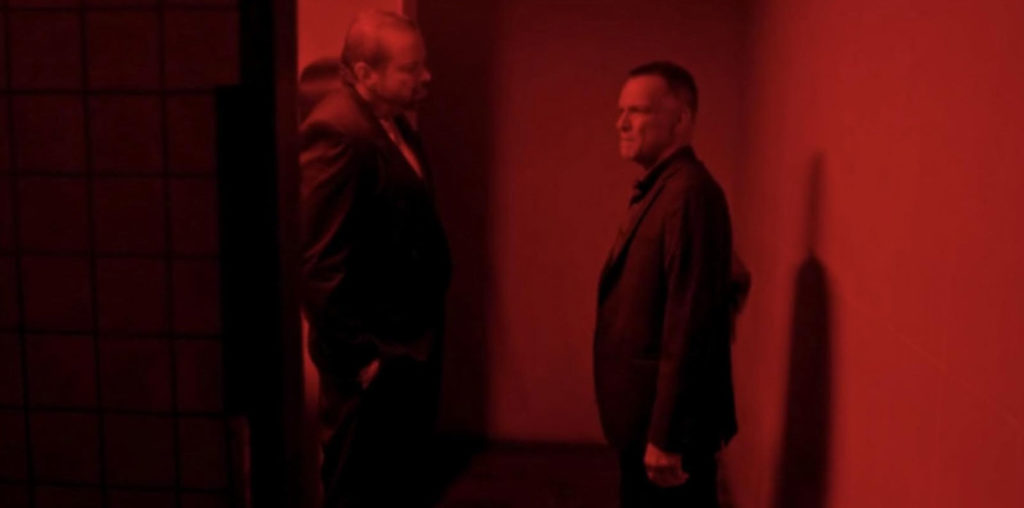
“Do you feel seventeen?” a high school senior asks a friend in one of “Friday Night Lights”‘ most quietly searing scenes, “I know I don’t feel seventeen.” The line is spoken by a young actor named Lucas Black. The reason his character feels older than his years has to do with the fact that he’s the quarterback on a team in a small Texas town which takes its football very seriously. Before the new season even starts it’s made crystal clear to him that he’s expected to win the state championship. The pressure’s not entirely from the outside, however. In his heart, he realizes that an athletic scholarship is his only hope for leaving the place behind and moving onto bigger and better things.
Unusually well drawn characters and the empathy its creators have for them are just two of the things that distinguish Peter (“Very Bad Things”) Berg’s latest from most sports movies. The film also benefits from unusually solid writing and a masterfully understated turn by Billy Bob Thornton.
Thornton plays the team’s coach, an unassuming figure whose down home demeanor belies hidden depth. He’s in a vise of his own. On one hand, he’s paid a salary larger than that of the mayor. On the other, the citizens who pay that salary, from movers and shakers to ordinary working people, believe it buys extraordinary access to and influence over him. A family man who doesn’t want to uproot his family again, he knows that his ability as a team leader is only marginally more significant than his skill at public relations.
Once the season kicks off, though, things get real simple. He and the team either win games or lose them and losing more than two will put the championship out of reach. Several members get off to a slow start but things look promising thanks to the squad’s star player, a gifted running back who has ‘pro’ written all over him. He’s the center of the universe for the town. Little kids bike behind him as he jogs through its streets. The best colleges in the country are already mailing offers.
Derek Luke infuses the character with sufficient humor and humanity early on to keep his cockiness from making him unpalatable as he waves Mercedes Benz brochures in front of other players and brags about the millions he’s destined to make.
The focus shifts to a number of less gifted teammates when an injury calls his continued participation into question. This is the point in a more regulation sports movie when lovable underdogs would fall behind, gradually hit their stride, launch a heart-tugging comeback and pull off the impossible as the clock runs out on the season.
To its credit, “Friday Night Lights” has a more interesting game plan. The script spends at least as much time exploring the psychologies of the young players and the problems they face at home as it does rallying the audience behind their efforts on the field. These are unexpectedly affecting dramas. One lives alone with his ailing mother and is conflicted about going on to college. Another is pitted against an abusive father (played nicely by country western warbler Tim McGraw), an alcoholic who attempts to bully his son into living up to his own local gridiron legend. Next to something like “Varsity Blues” or “Remember the Titans” this comes off as Oscar caliber stuff.
The picture does build toward the mandatory Big Game but it makes dramatic pit stops along the way and it’s these glimpses into the characters’ lives and motives that give the quest for the championship its meaning. The only other movie I can think of that has done this sort of thing artfully, “Hoosiers”, did it better but “Friday Night Lights” is in the same league.
The games themselves are gravy–briskly paced, beautifully shot, bone-crushing battles as stirring as any in the long history of sports films. In addition to the Big Game, the film includes the mandatory half time pep talk. What Thornton says at this pivotal moment and the way he says it have everything to do with the way you feel as you walk out of the theater. It may very well be the quietest pep talk in movie history. It’s certainly one of the most truthful and moving. The actor’s performance is a far more shaded, complex one than it appears on the surface and I’d rank the scene with the most memorable of his career.
Based on a true story, “Friday Night Lights” ends with a meeting of mismatched Texas teams. Movie critic law forbids my giving away the winner but I’m going to anyway:
Any way you score it, it’s the audience.
